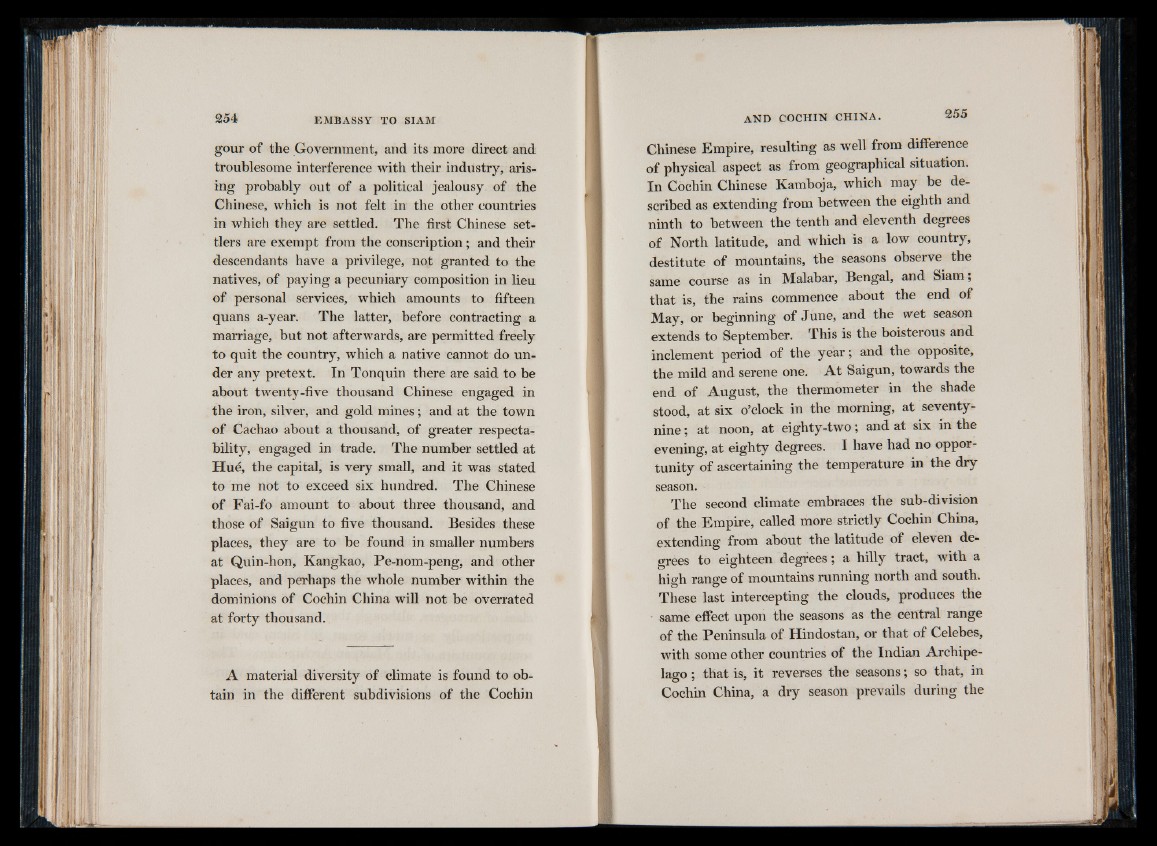
gour of the Government, and its more direct and
troublesome interference with their industry, arising
probably out of a political jealousy of the
Chinese, which is not felt in the other countries
in which they are settled. The first Chinese settlers
are exempt from the conscription; and their
descendants have a privilege, not granted to the
natives, of paying a pecuniary composition in lieu
of personal services, which amounts to fifteen
quans a-year. The latter, before contracting a
marriage, but not afterwards, are permitted freely
to quit the country, which a native cannot do under
any pretext. In Tonquin there are said to be
about twenty-five thousand Chinese engaged in
the iron, silver, and gold mines; and at the town
of Cachao about a thousand, of greater respectability,
engaged in trade. The number settled at
Hud, the capital, is very small, and it was stated
to me not to exceed six hundred. The Chinese
of Fai-fo amount to about three thousand, and
those of Saigun to five thousand. Besides these
places, they are to be found in smaller numbers
at Quin-hon, Kangkao, Pe-nom-peng, and other
places, and perhaps the whole number within the
dominions of Cochin China will not be overrated
at forty thousand.
A material diversity of climate is found to obtain
in the different subdivisions of the Cochin
Chinese Empire, resulting as well from difference
of physical aspect as from geographical situation.
In Cochin Chinese Kamboja, which may be described
as extending from between the eighth and
ninth to between the tenth and eleventh degrees
of North latitude, and which is a low country,
destitute of mountains, the seasons observe the
same course as in Malabar, Bengal, and Siam;
that is, the rains commence about the end of
May, or beginning of June, and the wet season
extends to September. This is the boisterous and
inclement period of the year; and the opposite,
the mild and serene one. A t Saigun, towards the
end of August, the thermometer in the shade
stood, at six o’clock in the morning, at seventy-
nine ; at noon, at eighty-two % and at six in the
evening, at eighty degrees. I have had no opportunity
of ascertaining the temperature in the dry
season.
The second climate embraces the sub-division
of the Empire, called more strictly Cochin China,
extending from about the latitude of eleven degrees
to eighteen degrees; a hilly tract, with a
high range of mountains running north and south.
These last intercepting the clouds, produces the
same effect upon the seasons as the central range
of the Peninsula of Hindostán, or that of Celebes,
with some other countries of the Indian Archipelago
; that is, it reverses the seasons; so that, in
Cochin China, a dry season prevails during the